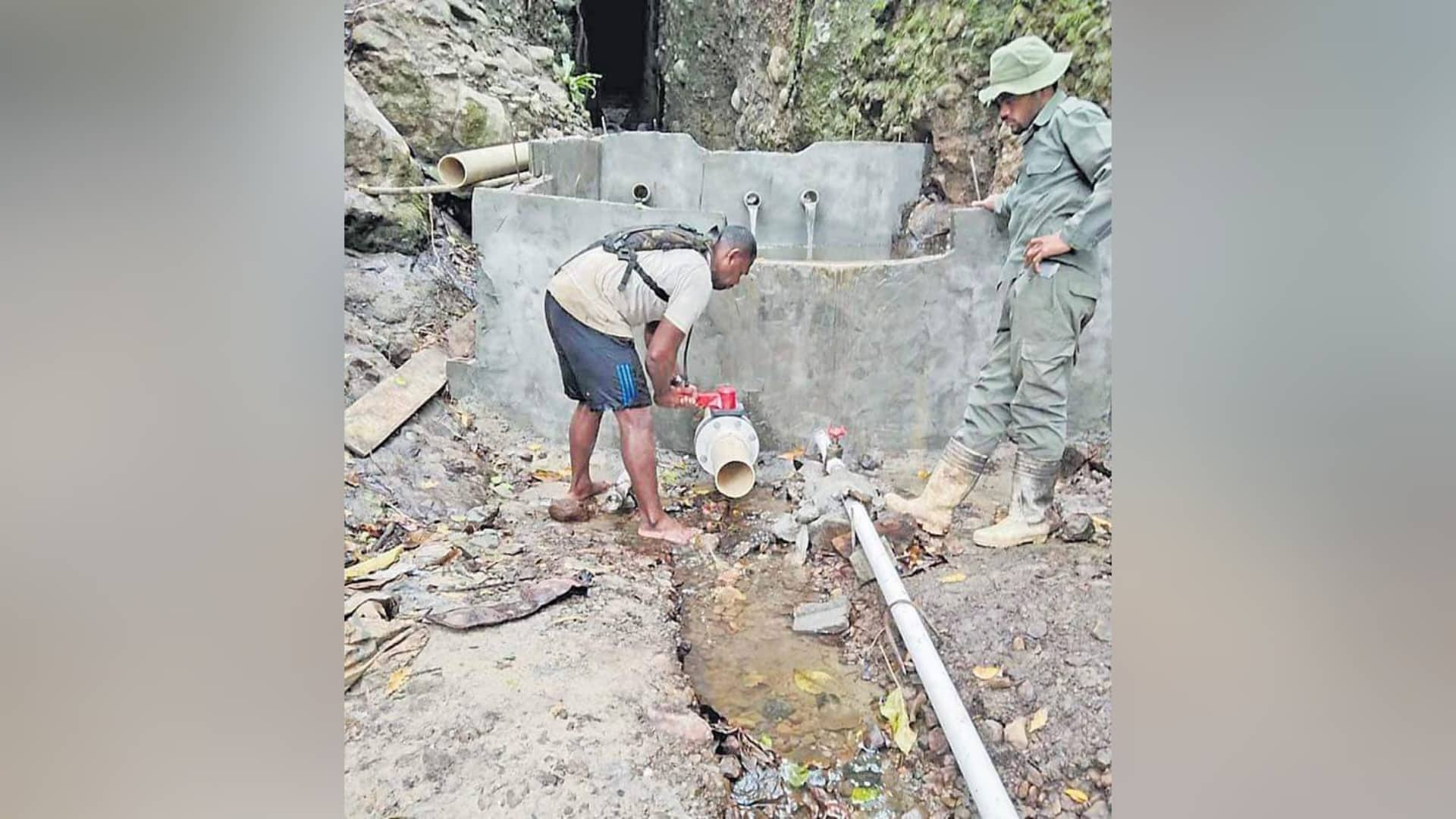Having access to clean water is vital to our health, communities, and economy but many others are enjoying this privilege, villagers of Beqa and Yanuca have had to look for proper water source for the past several years.
However, thanks to Pacific Blue Foundation’s Beqa Lagoon Initiative on water security this issue will soon be a thing of the past now for them.
The villagers now have access to new and clean water sources.
PBF has been able to refurbish these water sources, water catchments, storage tanks, pipe systems, household tanks and tap leaks.
According to PBF most water sources for these villagers were from an open spring or borehole with no shelter or barrier to keep debris and animals away.
PBF has been able to construct fencing around these water sources together with a shelter to protect the open springs and water catchments.
PBF community coordinator Orisi Cagilaba said the Beqa Lagoon Initiative (BLI) is at the centre of Pacific Blue Foundation’s work in Fiji and has been operational since 2017.
He said BLI was a local community-driven, ecosystem-based management program that focused on bringing together 10 local Fijian communities, tourism operators, and government agencies to build ecosystem resilience through sustainable and integrated co-management of the marine, coastal and terrestrial environments of Beqa Lagoon.
“The goal of the water security project is to increase community resilience by providing awareness and access to fresh water for domestic and farming use, expanding rainwater capture and storage infrastructure, and achieving best practice hygiene and sanitation practices,” he said.
“All the 10 villages in the Beqa Lagoon namely Raviravi, Rukua, Naiseuseu, Naceva, Lalati, Dakuni, Dakuibeqa, Soliyaga, Nawaisomo and Yanuca have the water security project currently being implemented on the above mentioned sites, some of which have been successfully completed, while the other sites are still work in progress.”
Mr Cagilaba said due to certain water related problems in the Beqa and Yanuca islands, it was noted that there was a need to support these communities to combat their water problem issues.
“Problems encountered were in relation to water dams where during instances of flooding or heavy rainfall, debris fall into the dam which contaminates drinking water, simply because the dams were not sheltered. “The piping systems too were a big factor, since most of them were leaking or damaged.
Mr Cagilaba said household tanks and taps were also a concurring issue since most of these tanks were leaking and had no proper guttering to fill tanks, which affected families’ access to clean drinking water.
He said consultations with relevant authorities like the Commissioner Centrals Office, Department of Water and Sewerage, WAF provincial offices and the communities allowed designs of the water systems to be identified. Scoping works were presented back to communities for endorsement.
Mr Cagilaba said the water security project was by far the most successful project being implemented by PBF.
He said a water security project conducted in Suva last month had brought together water committees from the two islands to educate and create awareness of the policies and legislations that govern their operation.
Mr Cagilaba said this was also a forum where the roles and responsibilities of the respective water committee members were highlighted to complement their work on ground.
“On the same note, the traditional leaders were reminded about their roles as stewards on this important project.”
About PBF
The Pacific Blue Foundation (PBF) is a public-benefit Charitable Trust registered in Fiji since 2006, and a Non-Profit 501(c)3 registered in the US since 2004.
PBF’s mission is to provide research, education, encouragement and dissemination of sustainable practices in coastal regions with the ultimate goal of preserving and promoting the biological and cultural diversity of the region PBF uses ‘conservation through collaboration’ approach by partnering with community, government, other non-forprofit organisations, academia and the private sector to achieve sustainable socioeconomic development while preserving biological diversity and traditional culture.






